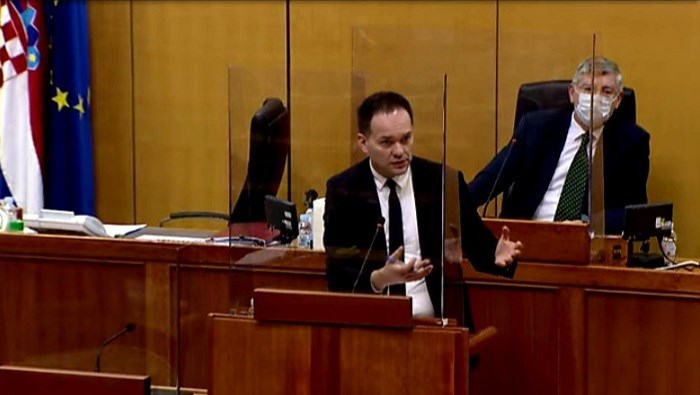- Published: 04.03.2021.
State Secretary Lucić presents report on Croatia’s development aid in 2019
State Secretary for Foreign Trade and Development Cooperation Zdenko Lucić presented on Thursday at the Croatian Parliament the Report on the Implementation of Croatia’s Official Development Assistance in 2019
State Secretary for Foreign Trade and Development Cooperation Zdenko Lucić presented on Thursday at the Croatian Parliament the Report on the Implementation of Croatia’s Official Development Assistance in 2019.
Lucić reported that Croatia’s official development aid in 2019 totalled 480.84 million kuna. Croatia maintained a continuity of annual growth of development aid financing, which rose by 6% in 2019, amounting to 0.13% GDP. The majority went to the part of the EU General Budget recognized as development aid, as well as the obligatory contribution to the EU Development Fund, which in 2019 totalled 73.5 million kuna.
Bilateral programmes and official development assistance projects received 130.81 million kuna or 27.27%. National stakeholders implemented a total of 449 projects.
The majority of Croatia’s official development assistance funds went to development cooperation – 455.8 million kuna or 94%. The remaining 23.8 million, or about 5%, went to humanitarian aid.
The report singles out the programme countries in three priority geographic areas: Bosnia and Herzegovina in Southeast Europe, Ukraine in the Eastern Neighbourhood and Jordan in the Southern Neighbourood. The assistance was primarily directed towards the first sectoral priority of the National Strategy – ensuring the dignity of each individual by investing in education and healthcare.
A total of 199 projects were implemented in Bosnia and Herzegovina, taking the first place in Croatia’s official bilateral development assistance with a total of 89.06 million kuna.
During the report period, financial support also went to the European Investment Bank’s Economic Resilience Initiative, directed towards countries along the migrant route, and the EU Facility for Refugees in Turkey – both aimed at preventing illegal migration and alleviating its consequences.
In 2019, assistance was sent to Yemen (in cooperation with the UNICEF), Iran (in cooperation with the WHO), Mozambique (in cooperation with the WFP) and Albania, amid the earthquake-caused humanitarian crisis.
Lucić underscored that by boosting official development assistance, Croatia is directly influencing the strengthening of national capacities and the presence of Croatia’s implementation partners in the world, thereby protecting and promoting our foreign policy and economic interests.



